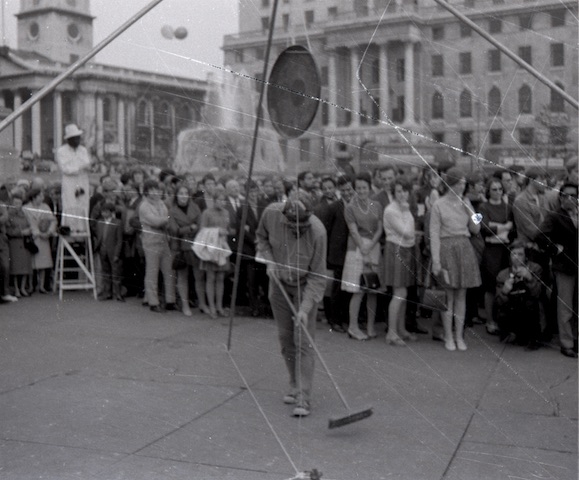After an absence of four and half years I returned to England in 1964.
Consumerism had finally superseded the austerities of the postwar period and there was a growing sense of the ‘modern’: more things to do, greater availability of goods, more entertainments, plenty. In the visual culture the source of a new art could be found in the margins. In other words, locations became less fixed. I realised that the surface of this new broad culture – of conspicuous individualism – masked a dreadful conformity vigorously promoted by the media. A call to volunteer as the unthinking servants of the status quo. Today, this conformity can be seen in a more complex, expanded field, its ongoing spectacle is one of the features of a shrinking common culture.
Ripples of the events in Paris were felt widely, not least in England, with sit-ins at the Hornsey, other art schools and a few universities (Essex in 1968, Liverpool in 1970, for example), in which a central demand of students was the lateral democratisation of the educational process. The Hornsey sit-in was an unexpected, exceptional collective experience, where the adage of teaching the teachers held sway. There was an optimism, which is perhaps why it is remembered more for the event itself than for having had an effective outcome. It was a reformist attempt to change education and society, but there was not a strong enough structural case made by the students. At best it could be seen as a revolt. The summer term came to an end and with it the sit-in faded away.
The Thatcher period has marked an acceleration of naked capitalism, morphing into neoliberalism, which, spreading through society has changed the terms of education and art’s broader culture. In the ethos of enrichment (the art market, the fair economy, etc) we see the deadly embrace of the corporate within high culture, drawing in the support mechanisms of its lower forms: tourism, heritage… art entertainment. Managed by an intelligent division of sororities and fraternities, this is the model of neoliberalism itself. It bears no relationship to the Welfare State there was in 1968.
The future. Stop.
From the May 2018 issue of ArtReview
